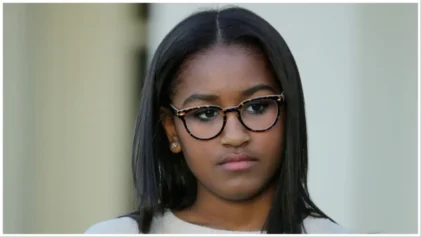It’s an iconic picture that spoke more about what Barack Obama’s election as America’s first black president meant to those who looked like him than any words ever could.
It was four months into his term in May 2009 when a White House photographer captured the telling shot of a five-year-old Philadelphia boy touching the president’s head to see for himself if his hair indeed felt like his own.
“Why don’t you touch it and see for yourself?” Obama replied before bending down and lowering his head to within the boy’s reach.
The White House photographer captured the telling image, signifying the symbolic resonance shared at the time by many African-Americans that one of their own sat in the Oval Office for the first time in American history.
“Every couple of weeks the White House photographers change out the photos in the West Wing,” Michelle Obama said at a fundraiser in September. “Except for that one. So if you ever wonder whether change is possible, I want you think of that little black boy in the Oval Office of the White House touching the head of the first black president.”
Those powerful feelings of pride were nearly palpable back in those heady early days and haven’t diminished even in the face of tough economic times that have struck the African-American community the hardest of all.
According to Gallup, 90 percent of African-Americans intend to back him and they plan to turn out at the same rate as white voters. No other block of voters is more loyal.
Or optimistic.
A Pew survey in January 2010 indicated that the percentage of black Americans who thought they were better off than they were five years before had almost doubled since 2007. There were also significant increases in the percentages who believed the standard-of-living gap between whites and blacks was decreasing. No wonder they love the president.
There was only one trouble with these assessments – they weren’t true.
African Americans, as a group, are far worse off now than they were when Obama came to power and the gap between whites and blacks in terms of wealth and income has increased under Obama’s tenure. The overall rate of unemployment may be close to where it was when Obama took office, but black unemployment is up 11 percent.
It means the change Obama promised while running for president has been for the worse for the African-American community.
“We haven’t seen much of the stimulus trickle down to our people here,” Mark Allen, a Chicago-based community organizer who used to work alongside Obama, told the Washington Post. “I liked the community organizer Obama better than President Obama … Democrats say Barack has got 90 percent or whatever of the black vote wrapped up. What they don’t tell you is its 90 percent of those who actually come out and vote. What if it’s 90 percent of just 30 or 40 percent who vote?”
Yet, African-Americans remain fiercely loyal to the president.
“Too many black intellectuals have given up the hard work of thinking carefully in public about the crisis facing black America,” Princeton professor Eddie Glaude said recently. “We have either become cheerleaders for President Obama or self-serving pundits.”
There are some sound reasons for this. The first is the overt racism that Obama has faced from a significant portion both of the political class and the public as a whole. Half of white Americans in one Pew survey shared the birthers’ doubt that Obama was born in this country. The percentage of Americans who believed he is a Muslim has doubled since he took office.
Far from a post-racial era of equality, his election in 2008 has exposed and unleashed a visceral level of intolerance that has produced the most racially-polarized electorate for at least a generation.
African-Americans have understandably become defensive about the need to defend Obama and his right to be in office at all.
Still, the president is often criticized for “not doing enough for his own people.”
And rightfully so, too, even if he is the president for all Americans, not just black ones. Because it’s black people suffering most, they have every right to make demands on Obama because they gave him a greater percentage of their votes than any other group, and he owes his presidency to them. But precisely the opposite has been happening.
“With 14 percent unemployment, if we had a white president we’d be marching around the White House,” said the chairman of the Congressional Black Caucus (CBC), Emmanuel Cleaver. “The president knows we are going to act in deference to him in a way we wouldn’t to someone white.”
In his first two years in office, he talked about race less than any Democratic president since 1961. In all of his state of the union speeches he mentioned poverty just three times.
At a CBC meeting in September, he told his former colleagues: “Take off your bedroom slippers, put on your marching shoes. Shake it off. Stop complaining, stop grumbling, stop crying.”
This would not be the first time that the black Americans have shown great loyalty to a Democratic president who did not fully return the favor. Bill Clinton is still revered even though when he ran in 1992 he made a special trip back to Arkansas to oversee the execution of Ricky Ray Rector – a black, lobotomized inmate so mentally incapacitated that when given his last meal, he opted to save the dessert for after the execution. When in power, Clinton signed off on a welfare reform that would prove devastating to large numbers of black families, as well as the “Three-strikes-and-you’re-out” jail policy that adversely affected African-American men.
Not exactly the kind of hope and change African-Americans had in mind four years ago.


